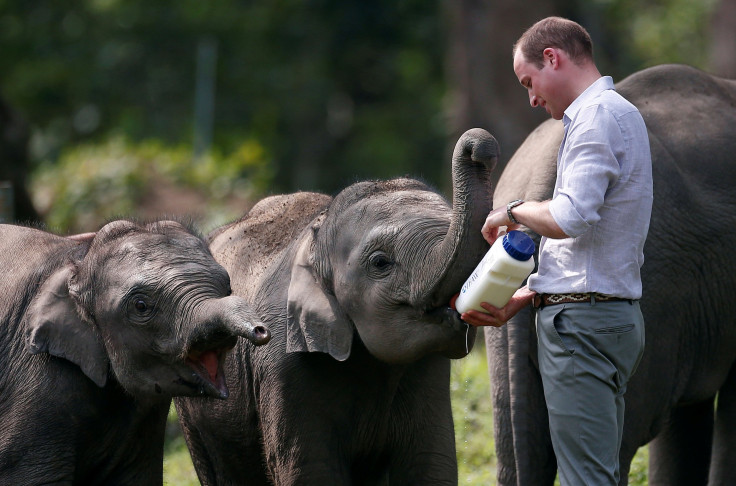China Ivory Trade Ban: Prince William Says Move Could Save Elephants From Extinction

Prince William on Monday praised China's decision to ban all ivory trade and processing activities by the end of 2017. The Duke of Cambridge said the move could save elephants from extinction.
China, which has the biggest ivory market in the world, made the announcement following a resolution at the Convention on International Trade in Endangered Species in South Africa in October 2016.
"I congratulate the Chinese Government for following through on this important commitment. This battle can be won," Prince William wrote in a statement. "We need all countries to step up to the plate and do their part to end the illegal wildlife trade & save these species before it's too late."
The details of the ban were made public by the China's State Council on Friday. The commercial processing and sale of ivory will stop by March 31, and a full halt to the market will be made by the end of the year.
Prince William has been an advocate of banning ivory sale which is a leading cause for elephant poaching. The 34-year-old British royal made wildlife crime and conservation a personal cause and has lobbied the presidents of China, the U.S. and African countries to strengthen wildlife protection.
Last year, Prince William expressed the fear that the African elephant could disappear from the wild due to poaching by the time Princess Charlotte is 25 years old. His daughter with his wife is 20 months old.
Meanwhile, China's ban on ivory sale has also been welcomed by conservation group WWF, which called it a "historic announcement... signaling an end to the world's primary legal ivory market and a major boost to international efforts to tackle the elephant poaching crisis in Africa."
The WWF said while elephant poaching in Africa peaked in 2011, around 20,000 continue to be killed illegally each year across the continent, mostly owing to demand for ivory, particularly in China.
Elly Pepper, deputy director of wildlife trade for the Natural Resources Defense Council, also praised China for its "great leadership" on the issue.
"Setting such an aggressive timeline to close — once and for all — the largest domestic ivory market in the world is globally significant," Pepper reportedly said. "It's a game changer and could be the pivotal turning point that brings elephants back from the brink of extinction."
© Copyright IBTimes 2024. All rights reserved.











